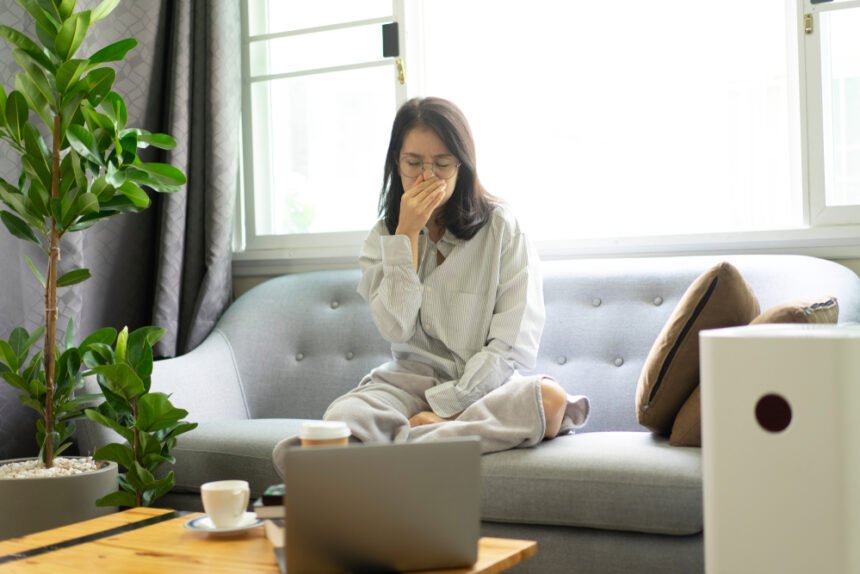For the last three months, millions of Americans have been forced to work from home, serving as a reminder that remote working could actually be the future. As a result, giant companies like Twitter have already announced their intentions to make remote work a permanent option for its employees, while countless others are considering allowing their employees to work remotely from time to time. While this is largely great news if you love a bit of freedom and flexibility when working, there’s a downside. Unlike in a typical workplace where the employer is responsible for your health and safety, you’ll have to make various changes at home to create a safe working environment, starting with eliminating indoor air pollution. Here’s how to ensure that your home always has clean air.
Keep it clean
One of the easiest ways to prevent indoor air pollution is by keeping your home clean, especially if you have young kids or pets that love to drag dirt in. First of all, consider making a rule that prevents anyone from wearing dirty shoes inside. Walking into your home wearing the same shoes you had on outside can bring in an obscene amount of dirt that leads to indoor air pollution and forces you to clean more often. You can have a shoe rack waiting at the door with clean footwear that your guests and family members can change into when walking in. When it comes to cleaning, do it more often and don’t leave any area unattended. However, make sure you are using safe cleaning products that won’t introduce dangerous volatile organic compounds (VOCs) into your indoor air environment. If you have carpets, clean them regularly using a HEPA filter vacuum that captures and removes all contaminants.
Invest in a quality HVAC system
HVAC systems have become a key part of indoor air quality management at home; on top of keeping the temperature and humidity in your home in check, HVAC systems keep the air clean by removing allergens and pollutants from your home and replacing them with clean, fresh air. However, for this to work, you must follow proper maintenance procedures that ensure that your HVAC system is working efficiently at all times. One of the key maintenance operations for your HVAC system is replacing the air filter. A dirty air filter not only pumps dirty air back into your home but also makes it harder for your air conditioner to clean air, leading to higher energy costs. However, since HVAC filter sizes differ, make sure you have the right one for the type and size of your HVAC system. Other HVAC maintenance operations may include checking for refrigerant leaks, lubricating moving parts, and cleaning the ducts.
Add some indoor plants
Through photosynthesis, indoor plants can clean your indoor air by converting the carbon dioxide you exhale into fresh oxygen and getting rid of cancer-causing VOCs like benzene and formaldehyde. On top of that, studies have shown that plants can improve your mental health by knocking out stress and calming the sympathetic nervous system. Some of the best indoor plants include aloe vera, fern, cacti, and snake plants. However, keep in mind that plants may collect and foster mold growth as well as act as triggers for those with pollen allergies.
Smell good naturally
Conventional laundry detergents, air fresheners, and fabric softeners may smell good, but most of them could be doing more harm than good once you use them in your home. Most fragrances are made using petroleum products whose testing mostly focuses on whether they cause skin irritation and not whether they can have significant adverse health effects once inhaled. To make things worse, the actual composition of such fragrances is considered a “trade secret” under US federal laws, which means manufacturers are not required to include the specific chemicals used in their labels even if they could be harmful. If you want your home to smell nice, ditch the aerosol sprays and put more effort in cleaning and maintaining your HVAC system to ensure proper ventilation. Switch to mild cleaners that you’re sure don’t include artificial fragrances and look for naturally-scented laundry products to keep your clothes smelling fresh. You can also use lemon slices and baking soda to keep your kitchen smelling fresh.
Prevent exposure to carbon monoxide
Any combustion sources in your home including your central heating system, gas water heater, wood stove, fireplace, furnace, or unvented kerosene heaters can produce carbon monoxide, posing a serious threat to your family’s safety. To prevent this, you can start by choosing combustion equipment that meets EPA emission standards and keeping it properly adjusted and well-maintained to minimize toxic fumes. According to the EPA, its also a good idea to have your central heating system inspected, cleaned, and tuned-up at least once per year by a certified professional. Since carbon monoxide is odorless and colorless, having a smart carbon monoxide monitor is vital since it continually tracks levels of the gas and instantly notifies you when it finds traces of it so that you can take appropriate action.
If you want to maintain high productivity levels when working from home, indoor air quality has to be among your top concerns. While taking the above measures is a great start, it’s a good idea to hire a professional air quality expert regularly to inspect your home using specialized equipment and ensure that no air pollutants are hiding in plain sight.

